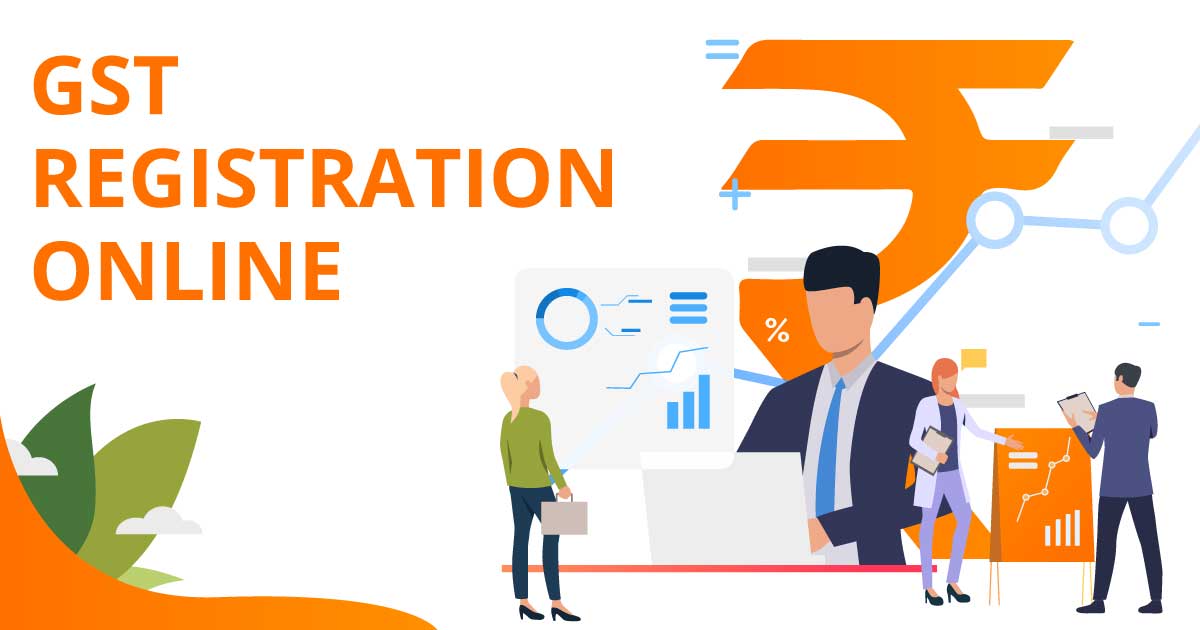
GST Registration
GST is known as the Goods and Services Tax, GST is levied on the sale of goods and services. Unlike previous indirect taxes, this tax is collected at the point of consumption and not at the point of origin. To summarize, GST is a comprehensive, multi-stage, destination-based tax that is levied on every value addition.
The law governing GST was passed in the parliament on the 29th of March 2017 and it was implemented across the country on the 1st of July 2017.
Multi-stage taxation:
A product goes through multiple stages before it is consumed by the end-user. These stages are similar to those of a supply chain.
For instance, the supply chain of a product involves the following stages:
► Purchase of raw materials
► Manufacturing of a product
► Warehousing of finished goods
► Selling the product to a wholesaler and then to a retailer
► Sale to the end consumer
GST is levied on each stage mentioned above, which makes it a multi-stage tax.
Destination-based tax:
GST is levied at the point of consumption of goods or services. For instance, if a product is manufactured in Delhi and is sold to an end consumer in Gurgaon, then GST will be levied and collected by the Government of Gurgaon and not Delhi.
GST Turnover Limit:
There are various types of GST registration and some types of entities like casual taxable persons, non-resident taxable persons or persons supplying through eCommerce operators are required to mandatorily obtain GST registration irrespective of turnover limit. The GST turnover limit for regular GST registration for service providers and goods supplier is provided below.
Service Providers: Any person or entity who provides service of more than INR 20 lakhs in aggregate turnover in a year is required to obtain GST registration. In special category states, the GST turnover limit for service providers has been fixed at INR 10 lakhs.
Goods Suppliers: As per notification No.10/2019 any person who is engaged in the exclusive supply of goods whose aggregate turnover crosses INR 40 lakhs in a year is required to obtain GST registration. To be eligible for the INR 40 lakhs turnover limit, the supplier must satisfy the following conditions:
► Should not be providing any services.
► The supplier should not be engaged in making intra-state supplies in the States of Arunachal Pradesh, Manipur, Meghalaya, Mizoram, Nagaland, Puducherry, Sikkim, Telangana, Tripura and Uttarakhand.
► Should not be involved in the supply of ice cream, pan masala or tobacco.
If the above conditions are not met, the supplier of goods would be required to obtain GST registration when the turnover crosses INR 20 lakhs and INR 10 lakhs in special category states.
Special Category States: Under GST, the following are listed as special category states – Arunachal Pradesh, Assam, Jammu and Kashmir, Manipur, Meghalaya, Mizoram, Nagaland, Sikkim, Tripura, Himachal Pradesh and Uttarakhand.
Documents required for GST registration:
► PAN Card
► Aadhaar Card
► Phone number and Email address
► Passport size photograph
► Address proof of the place of business
File your GST registration application online through Onlinefiling. Get help for GST registration procedure, eligibility and documents required. Without having GSTIN you cannot do inter-state business. This is possible only if you registered your business under GST. GST registration processing time are 5-7 working Days.
